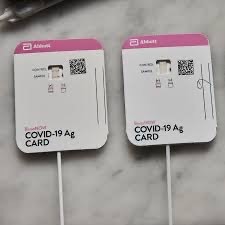This is a practical advice on what do and what to expect when recovering from Covid 19. Everyone is different, which makes it hard to make recommendations. I thought this article from The Wall Street Journal had some reasonable advice.
How Much Rest Do You Really Need When You Get Covid-19?
Even if you are vaccinated, boosted and healthy, it can take up to a month to fully recover
Doctors say it is important to rest, even for people with mild to moderate cases of the virus. Some doctors worry that as we get more inured to the pandemic, some people with symptoms aren’t taking enough down time. Pushing yourself too hard can lengthen your recovery, they say, adding that the healing trajectory for Covid-19 is less predictable than for other respiratory illnesses.
Many people with mild cases feel better in about a week. But even if you are vaccinated, boosted and in good health, it can take up to a month to fully recover to your pre-Covid baseline, both cognitively and physically, some doctors say, including for people who don’t experience especially severe symptoms. Symptoms like fatigue, dry cough and brain fog can linger for weeks.
So how much rest do you need after testing positive? Here’s what to expect over the course of your illness and what doctors advise at different stages.

In the first week
One rule of thumb: If your symptoms are predominantly above the neck, like a runny nose and sore throat, then it’s OK to do some work from home if you feel up to it, says Natasha Bhuyan, national medical director of One Medical.
If you’re feeling symptoms below the neck, such as shortness of breath or gastrointestinal issues, then rest until your symptoms are mostly resolved. People with symptoms such as fever, body aches and dizziness should absolutely be resting, says Dr. Bhuyan.
The optimal amount of rest varies, she says, but you want to feel both mentally and physically relaxed—so trying to meet a work deadline or scheduling back-to-back meetings is a bad idea.
And you want to get more sleep than usual, Dr. Bhuyan says, aiming for more than eight or nine hours a night.
If you feel able to do some work from home, set expectations with your boss and co-workers that you won’t be working your regular schedule, says Kavita Patel, a primary-care physician in Washington, D.C. You don’t have to lie in bed all day, she says, but don’t try to Zoom into every meeting.
Catching up on email is a reasonable activity to do in your first few days if you feel well enough. If you start feeling unusually tired, that is a sign of overexertion and you should stop, says Edward Jones-López, an infectious-diseases doctor with Keck Medicine at University of Southern California.
For runners and regular exercisers eager to get some activity, walking outdoors—if you’re confident you won’t expose anyone—might be OK. Moving your body somewhat can be beneficial for recovery, says Dr. Patel. Don’t move so much that your heart rate increases dramatically or your breathing becomes rapid and shallow, she cautions.
In the second week
You might be thinking that you should be back to normal, but not everyone is fully recovered by their second week. Symptoms can come and go.
Some people expect to be back at their pre-Covid baseline as soon as they test negative on a rapid antigen test. But just because you are no longer infectious doesn’t mean you have fully recovered, doctors warn.
For most people, fever and shortness of breath resolve within a week, says Stanley Martin, director of infectious diseases at Geisinger Medical Center in Danville, Pa. Other symptoms such as fatigue, cough or brain fog often take longer to resolve, he notes.
If by day six you are feeling better and resume normal activity but start to feel worse over the next couple of days, dial back your activity level, says Dr. Bhuyan.
Neha Vyas, a doctor in the department of family medicine at Cleveland Clinic, suggests increasing physical activity slowly once you feel ready. A gradual return to exercise can help recovery, she says.
“If you feel a setback, go back a little and get more rest,” she says.
After three weeks
Covid-19 symptoms can take from two to six weeks to fully resolve, estimates Dr. Jones-López.
A dry cough, for instance, can persist for weeks, say doctors. It’s fine to resume most normal activities with a lingering dry cough, but use caution about vigorous workouts.
Don’t be surprised if you feel more tired than usual for several weeks after testing positive.
Fatigue is the most common lingering symptom in Covid-19 patients, says Jai Marathe, an assistant professor in the department of medicine at Boston University School of Medicine.
“That is the last symptom to resolve and it takes quite a bit of time,” says Dr. Marathe. Cut back activity when you feel tired and try to get more sleep. Getting more than seven to nine hours a night will help, she says, as can taking naps during the day.
Brain fog can also linger for several weeks; that doesn’t necessarily mean you are developing long Covid, says Dr. Patel. You might feel less sharp, less able to remember things and not as quick with a response. Dr. Patel likens it to when you still feel the effects of Benadryl or a sleep prescription that makes you groggy.
Some doctors believe that resting during recovery from an acute Covid-19 case might decrease the chances of developing long Covid, but there is no data or evidence indicating that.
Doctors recommend that if you are still experiencing symptoms for more than a month, you should seek medical care.
“Is it just a prolonged case of a primary infection of Covid or is this turning into long Covid?” says Dr. Bhuyan. “We don’t know.”
Write to Sumathi Reddy at Sumathi.Reddy@wsj.com





